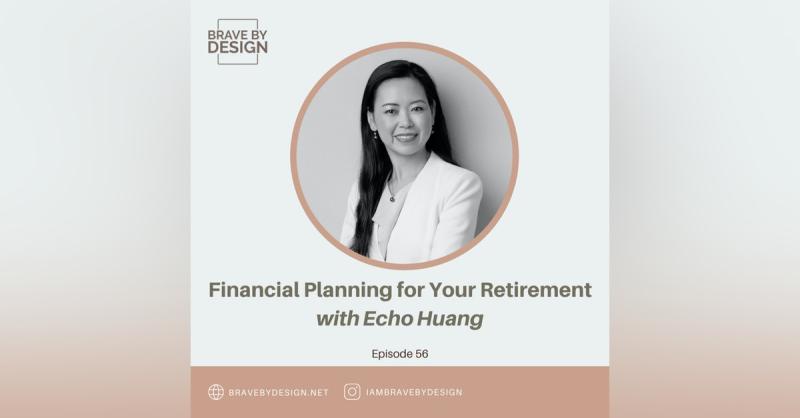Do Women Face Unique Financial Challenges?
If you are a woman and someone says you are “unique,” how does that make you feel? The confident woman might say it is a complement, and others might say it is a negative statement.
No matter your self-perspective, I’ve noticed that women face “unique” financial challenges. First, the facts show us that women today work about twelve years less than men, mainly due to having caregiving responsibilities for children, relatives, spouses, and parents.
Next, according to the US Census Bureau, women had median weekly earnings that were 82 percent of those of their male counterparts. Since Social Security and many employer retirement benefits are tied to earnings, women end up with lower levels of guaranteed retirement income. As a result, women’s median income in retirement is only 58 percent of men’s.
Another reason women face unique financial challenges is that women live longer than men, so their money must last longer. Lastly, women are more comfortable talking about money with female financial advisors and are more inclined to seek help from women, but only 23 percent of CFP® (Certified Financial Planner®) practitioners are women. Only about 20 percent of all financial advisors/planners in the US have the CFP® designation. In other words, there simply aren’t enough CFP® practitioners to serve women.
There are, however, some practical tips that women can implement on their own. Let me share some with you today.
Six Tips Specifically for Women
Whether you’re a woman or have a special woman in your life, here are six practical tips for women.
If you are a woman, the first tip to reaching your financial independence day is to start retirement saving early in your career because you have fewer years in the workforce. This is essential for long-term financial health.
Second, if you are a married woman, it’s important to actively participate in financial planning and not leave it totally to your spouse. Engage in the conversations about how you feel about your money and your short-term and long-term goals when you and your spouse work with a planner. Women have different concerns compared to men about their retirement years, and if they are not participating in the discussion and planning, their concerns will not be addressed.
Third, in my experience, we live in a culture in which it’s believed that men are better with investments, including picking stocks. Women therefore all too often leave financial decisions to their spouses, no matter how smart or successful they are in their careers. I’ve noticed that the financial landscape then becomes frightening to women when they become widows. For this reason, it’s important to participate in all financial decisions as early as possible.
Fourth, women should not overlook their physical health. Health is a valuable asset in your financial strategy. Women who invest in maintaining healthy lifestyles can enjoy better health with lower medical expenses for decades. In other words, health and wealth go together, and investing in the former is as important as investing in the latter.
The fifth tip for women is having a balanced plan. A growth investment strategy needs to be put in place to keep up with inflation so that guaranteed income from pension, Social Security, and annuities can help pay for basic expenses after retirement. Putting in place adequate insurance protection in the event of significant losses, such as life insurance, disability insurance, and long-term-care insurance, is key.
Sixth, it’s important to consult an expert. While wealth management doesn’t have to be complicated when working with a trusted expert and the team, financial products are getting more complicated.
Therefore, instead of doing nothing, it’s better to talk to a few financial advisors to find a partnership that is a good fit for you.
There is no way to avoid meticulous planning when you are trying to reach your financial independence day. No matter where you are or what your net worth is, having a plan at whatever stage of life you’re in, even if it’s not perfect, is critical to getting you on the right path.
It’s also important to recognize the roadblocks on your path. Ask yourself:
- What are the biggest challenges you face?
- Have you done any planning to address these? For example, if college funding is a goal, have you consulted anyone about making this provision in your plan?
- If retirement planning confuses you, have you identified someone you can trust to offer advice? If you are still in the job market, do you have an alternative means of generating income from other assets in case of emergency?
Meticulous planning can start anytime in life, but starting now will make a big difference down the road. Burying your head in the sand is the last thing you should do. It’s never too early to start recognizing gaps and filling them in your plan. For example, if you don’t have a budget, it’s time to start working on one. If you don’t have a projection tool or a financial advisor, find a tool online that will help you calculate how much you need to have by a certain age in order to retire. If you don’t know how to do it, finding a trusted financial advisor should be your first order of business.
Finally, it’s important to think about how you’re going to spend your time. To go from being a busy working woman to being retired requires a lot more than pre-retirement planning. Net worth, income, and expenses will need to be continually monitored.
As you can see, there are many moving pieces in getting to your financial independence day. If it seems too complicated, remember that it doesn’t have to be. I am here to help you. I have titles, which I am quite proud of--I am a CFP® (Certified Financial Planner) professional and CPA (Certified Public Accountant) and a CFA (Chartered Financial Analyst®) charter holder—but more importantly, I am a woman who cares about YOU and helping you achieve your financial independence day.
Next time, we will look at Five Steps to forming a Solid Investment Plan.













